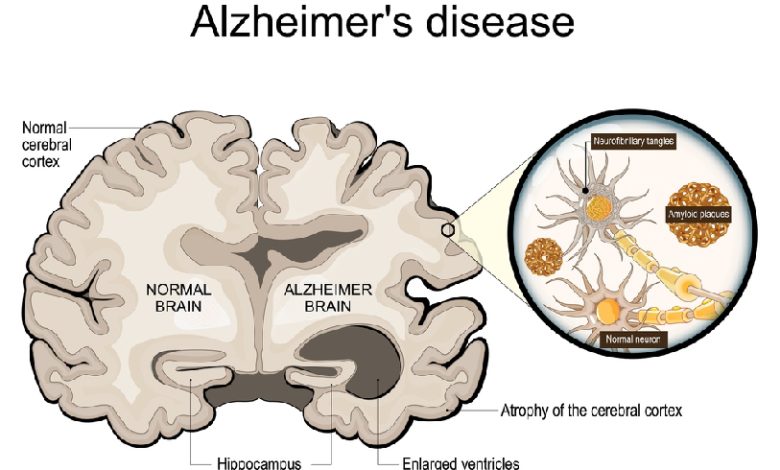Understanding Alzheimer’s Disease: Modern Approaches to Diagnosis, Treatment, and Prevention

Alzheimer’s disease represents one of the most challenging neurological conditions of our time, affecting millions of individuals worldwide and their families. As our understanding of this complex condition evolves, so too do our approaches to diagnosis, treatment, and prevention. This comprehensive guide explores the current state of Alzheimer’s research, treatment options, and the crucial role that genetic testing and early detection play in managing this condition. Understanding these advances enables individuals and healthcare providers to make informed decisions about care strategies and prevention approaches.
Understanding Alzheimer Disease: The Fundamentals
Alzheimer disease is a progressive neurodegenerative condition that primarily affects memory, thinking, and behavior. It is the most common cause of dementia, accounting for 60-80% of all dementia cases. The disease develops when abnormal protein deposits accumulate in the brain, disrupting normal cellular function and eventually leading to cell death.
The Science Behind Alzheimer Disease
Alzheimer disease involves complex biological processes that researchers continue to study intensively. The condition is characterized by several key pathological features:
• Amyloid plaques: Abnormal protein deposits that accumulate between brain cells • Neurofibrillary tangles: Twisted protein fibers that form inside brain cells • Brain atrophy: Progressive loss of brain tissue and neural connections • Neurotransmitter dysfunction: Disruption of chemical communication between brain cells • Inflammatory responses: Chronic inflammation that may contribute to disease progression
Risk Factors and Dementia Causes
Understanding dementia causes helps identify individuals at higher risk and informs prevention strategies. While age remains the strongest risk factor, several other factors contribute to Alzheimer disease development:
• Genetic factors: Family history and specific gene variants increase risk • Cardiovascular health: Poor heart health affects brain blood flow • Lifestyle factors: Physical inactivity, poor diet, and social isolation • Education levels: Lower educational attainment may increase vulnerability • Head trauma: Repeated head injuries may elevate risk over time
Early Warning Signs
Recognizing early symptoms of Alzheimer disease enables timely intervention and care planning:
• Memory loss: Difficulty remembering recent events or conversations • Planning challenges: Problems with complex tasks or decision-making • Confusion: Disorientation regarding time, place, or familiar people • Language difficulties: Trouble finding words or following conversations • Behavioral changes: Mood swings, anxiety, or personality alterations
Modern Approaches to อัลไซเมอร์ รักษา
อัลไซเมอร์ รักษา, or Alzheimer’s treatment, has evolved significantly as researchers develop new therapeutic approaches and optimize existing interventions. While no cure currently exists, various treatments can help manage symptoms and potentially slow disease progression.
Current Treatment Strategies
Contemporary อัลไซเมอร์ รักษา encompasses multiple therapeutic approaches designed to address different aspects of the condition:
• Pharmacological interventions: FDA-approved medications that may slow cognitive decline • Cognitive therapies: Mental exercises and training programs to maintain cognitive function • Lifestyle modifications: Diet, exercise, and activity programs supporting brain health • Behavioral interventions: Strategies for managing challenging behaviors and mood changes • Support services: Comprehensive care coordination and family support programs
Medication Options for อัลไซเมอร์ รักษา
Several medications have been approved for อัลไซเมอร์ รักษา, each working through different mechanisms:
• Cholinesterase inhibitors: Medications like donepezil, rivastigmine, and galantamine • NMDA receptor antagonists: Memantine for moderate to severe stages • Combination therapies: Using multiple medications together for enhanced effects • Emerging treatments: New drugs showing promise in clinical trials • Personalized medicine: Tailoring treatment based on individual genetic profiles
Can Alzheimer’s Be Treated if Caught Early?
Can Alzheimer’s be treated if caught early? Research consistently demonstrates that early intervention provides the best opportunities for maintaining cognitive function and quality of life. Early-stage อัลไซเมอร์ รักษา may include:
• Aggressive risk factor modification: Addressing cardiovascular and lifestyle factors • Cognitive training programs: Structured mental exercises to maintain cognitive abilities • Social engagement: Maintaining active social connections and meaningful activities • Nutritional optimization: Brain-healthy diets rich in antioxidants and omega-3 fatty acids • Regular monitoring: Frequent assessments to track progression and adjust treatments
Comprehensive Understanding of อัลไซเมอร์
อัลไซเมอร์, the Thai term for Alzheimer’s disease, encompasses not only the medical condition but also its broader impact on individuals, families, and society. Understanding อัลไซเมอร์ requires examining multiple dimensions of the condition.
The Progressive Nature of อัลไซเมอร์
อัลไซเมอร์ typically progresses through several distinct stages, each presenting unique challenges and care requirements:
• Preclinical stage: Brain changes occur before symptoms appear • Mild cognitive impairment: Subtle changes in thinking and memory • Early-stage dementia: Noticeable symptoms that interfere with daily activities • Moderate-stage dementia: Increased confusion and need for assistance • Severe-stage dementia: Extensive cognitive decline requiring comprehensive care
Impact on Families and Caregivers
อัลไซเมอร์ affects not only patients but also their families and caregivers. Understanding this broader impact is crucial for comprehensive care planning:
• Emotional stress: Grief, anxiety, and depression among family members • Financial burden: Costs associated with care, medications, and support services • Lifestyle changes: Adjustments to work, social, and personal commitments • Care coordination: Managing complex medical and social service needs • Future planning: Legal, financial, and care decisions for progressive decline
Cultural Considerations in อัลไซเมอร์ Care
Cultural factors significantly influence how families understand and respond to อัลไซเมอร์:
• Stigma and misconceptions: Addressing cultural beliefs about mental health and aging • Family dynamics: Respect for elders and traditional caregiving roles • Communication patterns: Cultural preferences for discussing serious medical conditions • Treatment acceptance: Attitudes toward medical interventions and alternative therapies • Support systems: Extended family networks and community resources
Bangkok Genomics Innovation: Advancing Alzheimer’s Research and Care
Bangkok Genomics Innovation has established itself as a leader in genetic testing and personalized medicine, offering advanced solutions for understanding and managing Alzheimer’s disease risk. Their comprehensive approach combines cutting-edge genetic analysis with clinical expertise to provide valuable insights for patients and healthcare providers.
Genetic Testing for Alzheimer’s Risk
Bangkok Genomics Innovation offers sophisticated genetic testing services that can identify predisposition to Alzheimer’s disease and other neurodegenerative conditions:
• APOE gene testing: Analysis of the most significant genetic risk factor for late-onset Alzheimer’s • Comprehensive panels: Multi-gene testing for various dementia-related conditions • Family history analysis: Evaluation of hereditary risk patterns across generations • Pharmacogenomics: Testing for optimal medication selection and dosing • Personalized risk assessment: Customized reports combining genetic and clinical factors
Research and Development Initiatives
Bangkok Genomics Innovation contributes to advancing Alzheimer’s research through various initiatives:
• Clinical studies: Participation in research investigating genetic factors in Alzheimer’s disease • Biomarker discovery: Development of new diagnostic and prognostic indicators • Treatment optimization: Research into personalized therapy approaches based on genetic profiles • Population studies: Large-scale analysis of genetic factors in Asian populations • Collaborative research: Partnerships with international research institutions and organizations
Comprehensive Health Assessment
What test can I do to check my whole body? Bangkok Genomics Innovation offers comprehensive health screening packages that include:
• Genetic predisposition testing: Assessment of risk for multiple health conditions • Biomarker analysis: Evaluation of current health status and disease indicators • Cognitive assessment: Specialized testing for early detection of cognitive changes • Cardiovascular evaluation: Assessment of heart health factors affecting brain function • Metabolic screening: Analysis of factors influencing overall health and aging
Innovative Approaches to Dementia Treatment
Dementia treatment continues evolving as researchers explore new therapeutic approaches and optimize existing interventions. Understanding these advances helps patients and families make informed decisions about care strategies.
What Will Help with Dementia?
What will help with dementia? Current evidence supports multiple intervention approaches:
• Cognitive stimulation: Mental exercises and activities that challenge thinking abilities • Physical exercise: Regular activity supporting brain health and cardiovascular function • Social engagement: Maintaining connections and meaningful relationships • Nutritional support: Brain-healthy diets and targeted supplementation • Medical management: Appropriate use of medications and medical interventions
Emerging Therapeutic Approaches
Research continues investigating novel dementia treatment strategies:
• Immunotherapy: Treatments targeting abnormal protein accumulations • Neuroprotective agents: Medications designed to protect brain cells from damage • Stem cell therapy: Experimental approaches using regenerative medicine • Digital therapeutics: Technology-based interventions for cognitive training • Lifestyle medicine: Comprehensive programs addressing multiple risk factors
Research and Clinical Trials
Alzheimer’s disease research charity rating organizations support ongoing research efforts that may lead to breakthrough treatments. These studies investigate:
• Disease prevention: Strategies for reducing risk or delaying onset • Early intervention: Treatments for preclinical and early-stage disease • Symptom management: Improved approaches to managing behavioral and cognitive symptoms • Quality of life: Interventions supporting overall well-being for patients and families • Biomarker development: New tools for diagnosis and monitoring disease progression
Future Directions in Alzheimer’s Care
The field of Alzheimer’s research and care continues advancing rapidly, offering hope for improved outcomes and potentially transformative treatments in the coming years.
Precision Medicine Approaches
Future Alzheimer’s care will increasingly incorporate personalized medicine strategies:
• Genetic profiling: Tailored treatments based on individual genetic characteristics • Biomarker-guided therapy: Using biological indicators to optimize treatment selection • Risk stratification: Personalized prevention strategies based on individual risk profiles • Treatment monitoring: Precision approaches to tracking treatment response • Care coordination: Integrated systems supporting comprehensive, personalized care
Technology Integration
Advancing technology will transform Alzheimer’s care delivery:
• Digital health tools: Apps and devices supporting cognitive monitoring and training • Telemedicine: Remote care delivery improving access and convenience • Artificial intelligence: AI-assisted diagnosis and treatment optimization • Wearable devices: Continuous monitoring of cognitive and physical function • Smart home technology: Environmental support systems for independent living
Conclusion
Understanding Alzheimer disease, อัลไซเมอร์ รักษา options, and the broader impact of อัลไซเมอร์ represents crucial knowledge for individuals, families, and healthcare providers. As research continues advancing our understanding of this complex condition, new opportunities emerge for early detection, effective treatment, and potentially prevention.
The integration of genetic testing, personalized medicine, and comprehensive care approaches offers unprecedented opportunities for optimizing outcomes for individuals at risk or living with Alzheimer’s disease. Organizations like Bangkok Genomics Innovation lead the way in providing advanced genetic testing and personalized medicine solutions that inform care decisions and treatment strategies.
Early detection through genetic testing and comprehensive health assessment enables proactive interventions that may slow disease progression and maintain quality of life. The investment in advanced diagnostic testing and personalized care planning provides valuable insights that support informed decision-making and optimal treatment selection.
As our understanding of Alzheimer’s disease continues evolving, the importance of comprehensive assessment, genetic testing, and personalized treatment approaches becomes increasingly clear. The future of Alzheimer’s care lies in this integrated approach that addresses the unique needs and characteristics of each individual while leveraging the latest scientific advances.
Ready to learn more about your genetic risk factors and explore personalized approaches to brain health and Alzheimer’s prevention? Discover Bangkok Genomics Innovation’s comprehensive genetic testing and personalized medicine solutions: https://www.bangkokgenomics.com/





